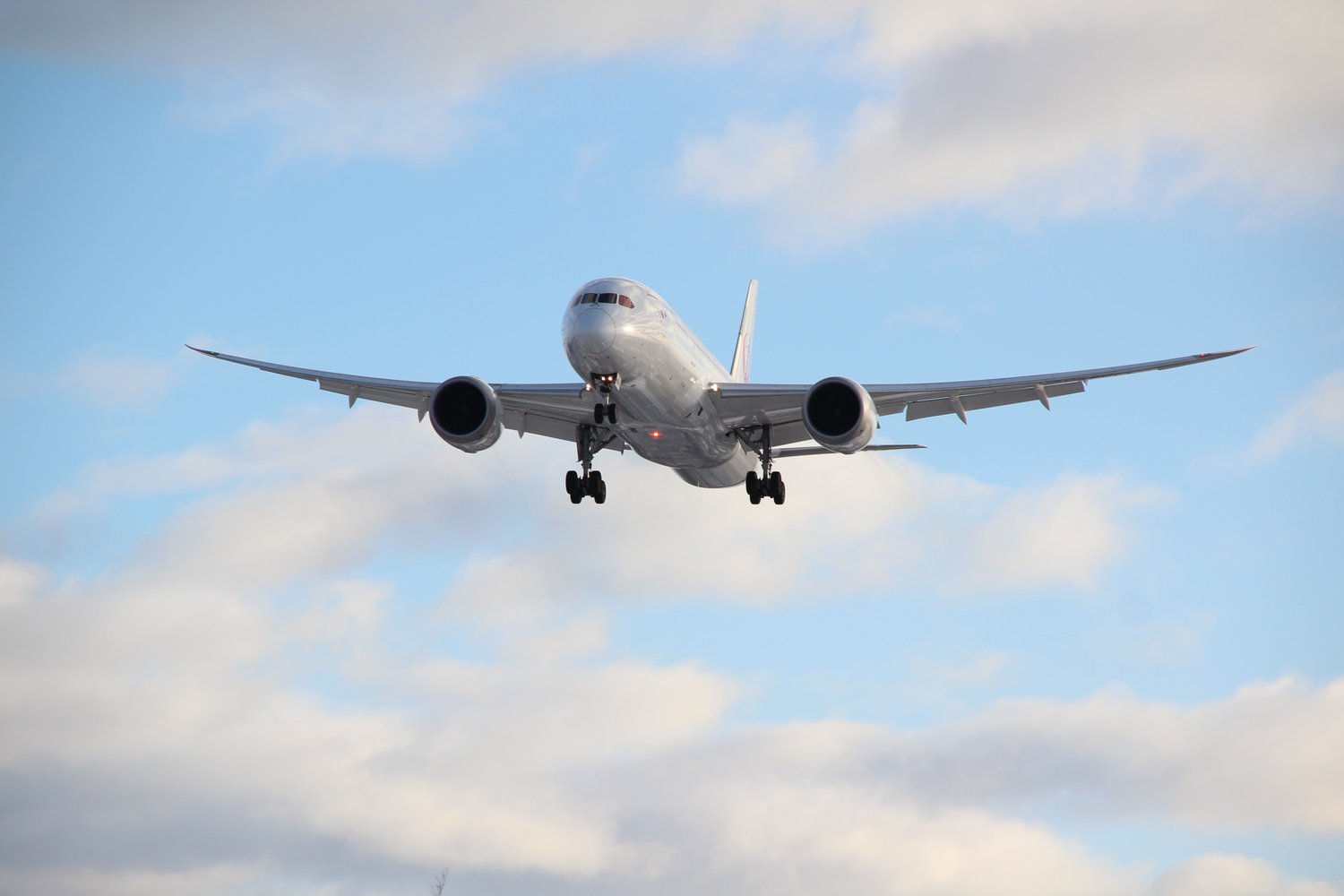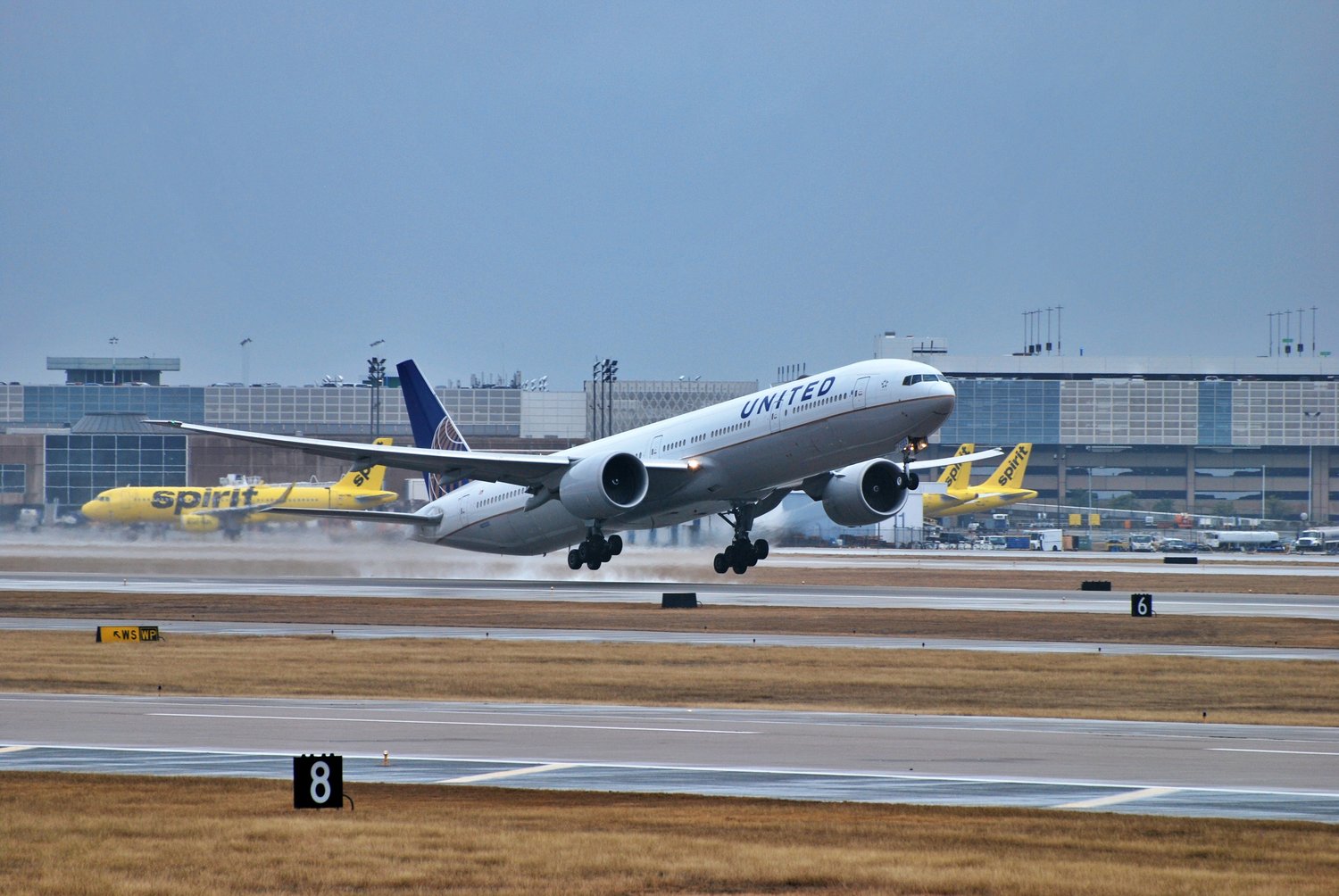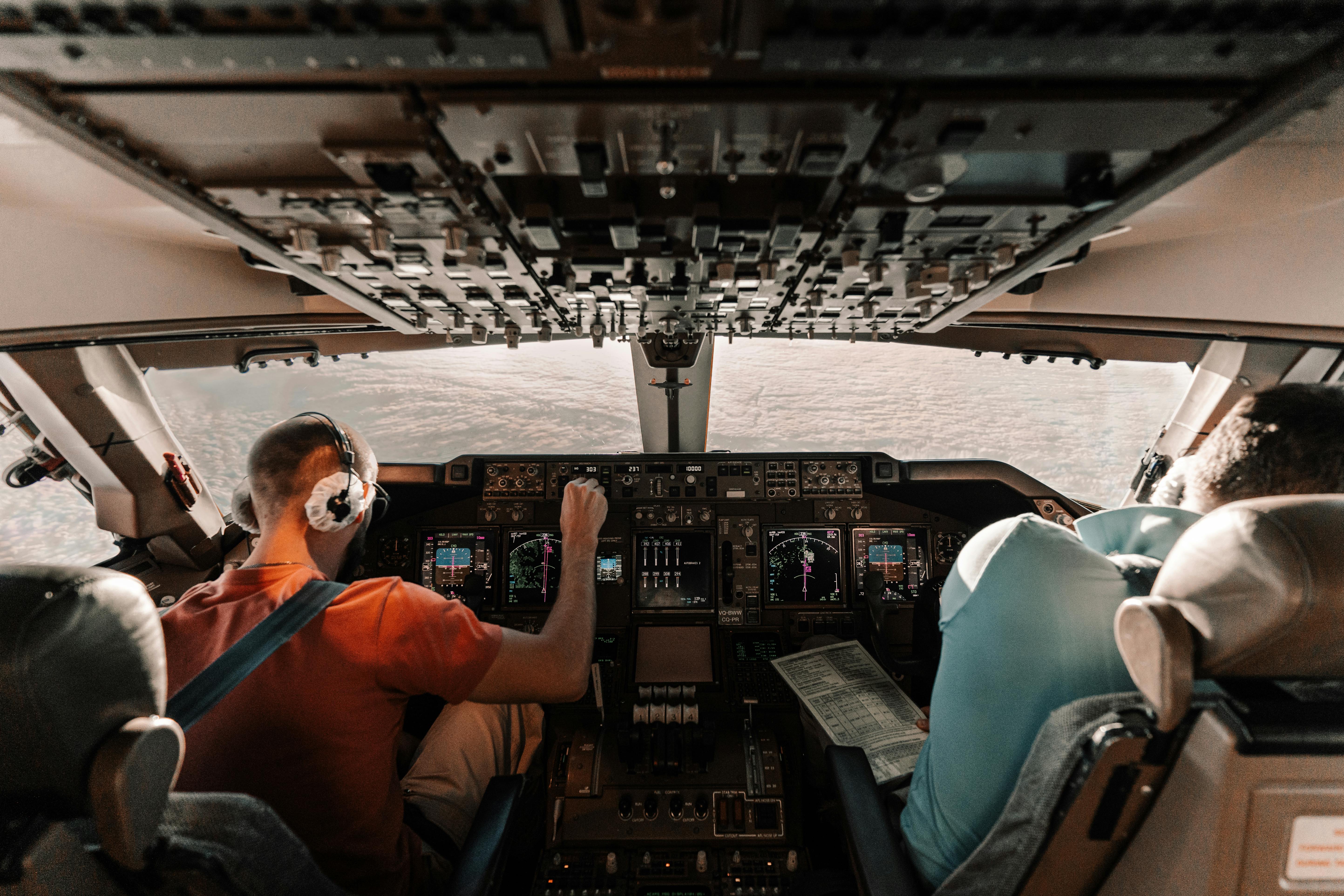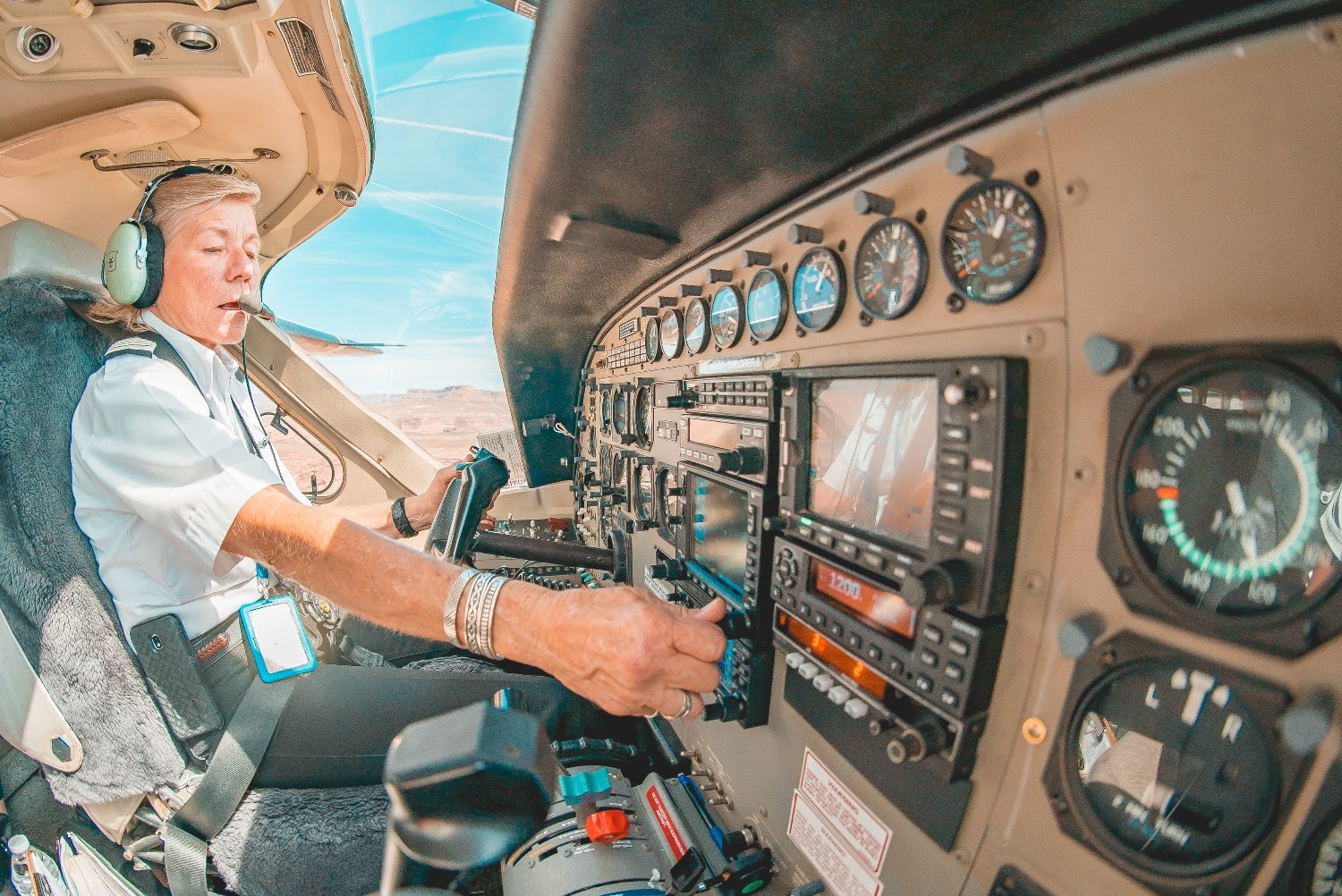Understanding Commercial Pilot Salaries
The allure of soaring through the skies, commanding an aircraft, and traveling to distant places has attracted numerous people to pursue careers as commercial pilots. Beyond the thrill of flying, one pivotal consideration for aspiring pilots is the potential financial rewards. In this article, we will delve into the intricacies of a commercial pilot's salary, including various job titles, average pay scales, and other factors influencing earnings.
Factors Influencing Commercial Pilot Salaries
Several factors contribute to the wide range of salaries among commercial pilots.

Position: Commercial pilot jobs are more diverse than captaining a Boeing 737 for United Airlines. With a commercial pilot certificate, pilots can give aerial tours, tow gliders or banners, patrol pipelines or powerlines, fly second in command for a Part 135 operator, spray cropland with insecticide and fertilizer, train prospective pilots, and much more.
Type of Airline: Among the airlines, the average salary still can vary significantly. Over the course of a career, working for a major airline typically yields higher salaries compared to regional or smaller carriers.
Experience: Pilot experience is often a key determinant of earnings. As pilots accumulate more flight hours and gain seniority, they become eligible for better-paying positions. Many airlines offer pay increases based on the total hours of flight time a pilot has accrued.
Aircraft Type: Pilots flying larger, long-haul aircraft often earn more due to the complexity of operating these planes.
Geographic Location: Salaries can vary based on the cost of living and demand for pilots in different regions.
Trending Upward
In recent decades, as economies have flourished and middle classes have expanded, more people are taking to the skies to travel for vacation and business. The growing demand for air travel has outpaced the rate at which new pilots have entered the profession.
Simultaneously, a generation of experienced pilots is nearing retirement age, leaving challenging vacancies to fill. The rigorous training and substantial flight experience required to become a commercial pilot further complicate efforts to replenish the workforce.
The convergence of more demand and a limited supply of pilots has increased pilot compensation. Keenly aware of the scarcity of skilled aviators, airlines are offering more competitive packages to attract and retain talent.
According to data from the Bureau of Labor Statistics, the median annual wage for airline and commercial pilots in the United States was over $134,000 in 2021. The data show that airline pilot salaries typically eclipse those of other commercial pilot jobs. In May 2021, the median annual wage for airline pilots, copilots, and flight engineers was more than $200,000, while the median annual wage for other commercial pilot positions fell just short of $100,000.
Breaking Down the Salary Figures Further
Airline Transport Pilots (ATPs) hold the highest level of pilot certification, which explains why they command some of the highest salaries in the aviation industry. Their earnings depend on factors like the airline's size, type of aircraft flown, and seniority. However, with the surging need for ATPs worldwide, airlines uniformly offer higher salaries and signing bonuses to entice experienced pilots to join their ranks.

At a major airline, first officers can expect to make approximately $90,000 to $100,000 annually. By the time they are experienced captains (12 or more years), salaries increase to around $300,000, sometimes even pushing $400,000.
Historically, pilots flying for regional airlines have earned less than their peers working for major carriers. However, with the increased demand for pilots, regional airlines have raised steadily minimum salaries, narrowing the gap with the majors.
In many cases, factoring in their first-year bonuses, new regional airline pilots take home more than a first officer at a major. Research from pilot career counselor Kit Darby revealed a 546 percent increase in starting pay for regional airline pilots over the past 23 years, from $16,000 per year in 2000 to $108,000 in 2023.
Salary figures for most other commercial pilot jobs vary significantly. Certified flight instructors, for instance, can make anywhere from around $30,000 per year to upwards of $100,000, depending on their employer, experience, ratings, location, and several other factors.
While most flight schools cannot compete with airline starting salaries, many have increased their pay and benefits and focused on offering a desirable workplace and work-life balance.
Related Content: How To Make Money Online as a Flight Instructor
The Flight Training Investment
Flight training is a significant investment aspiring pilots undertake to lay the foundation for their careers. While the costs can vary widely depending on the flight school, location, and type of aircraft used, the investment in flight training is essential, as it paves the way for potential future earnings as a commercial pilot.
As they say, you have to spend money to make money.
That said, for those considering a career as a commercial pilot, the current pilot shortage presents a unique opportunity. Airlines continue to invest in pilot recruitment, training, and development programs to ensure a steady pipeline of skilled pilots.
Learners and private pilots can leverage these initiatives to access financial support for flight training and accelerate their path to higher-paying positions. Before signing on the dotted line at a flight school, prospective pilots should explore the options for financing their training.
Pilot Career Advancement
A pilot's journey doesn't end with obtaining a commercial pilot certificate. Flying is a career marked by continuous growth and advancement. As pilots build flight hours, they gain experience and move up the ranks.
Beyond the ATP certificate, which opens the door to piloting large commercial aircraft for major airlines, pilots can further specialize by obtaining type ratings for specific aircraft. This specialization often comes with more responsibilities and, therefore, higher pay.
Additionally, pilots with extensive flight experience may be eligible for leadership roles within flight operations, contributing to the strategic management of flight schedules and crew assignments.
The Future of Commercial Pilot Salaries
The pilot shortage has illuminated the undeniable value of skilled aviators. As airlines strive to address this challenge and meet the growing demand for air travel, they are likely to continue offering competitive compensation packages. This not only benefits existing pilots but also encourages a new generation of aviators to embark on the journey of flight training.
While the current state of pilot salaries is promising, aspiring pilots need to maintain a realistic perspective. Becoming a commercial pilot requires dedication, time, and financial investment.
However, the potential rewards are substantial. As the aviation industry evolves and adapts to new technologies and passenger expectations, the role of the pilot remains integral, ensuring a vibrant and fulfilling career path for those passionate about flying. Beyond the financial benefits, the thrill of flying, exploring new destinations, and the sense of accomplishment in mastering complex aircraft are often intangible rewards.
While the path may demand unwavering dedication and initial financial commitments, the potential for a dynamic and rewarding career in an ever-evolving industry is undeniable. The skies offer a unique blend of challenges and adventures that are deeply gratifying for those who answer the call to fly.
As you ascend through the ranks, you'll find yourself not only mastering the art of aviation but also forging invaluable connections with like-minded professionals who share your passion for flight. So, if you're ready to take on an occupation that transcends the ordinary and propels you into endless possibilities, the path of a commercial pilot might just be your ticket.
Share this
You May Also Like
These Related Articles

Adapting to the Commercial ACS and Pro Pilot Norms

Commercial Pilot Requirements: A Beginner's Guide
-1.jpeg)